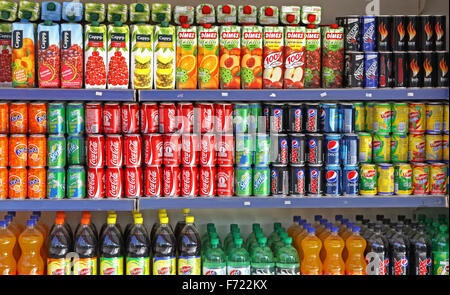Smuggling Crisis Threatens Ghana’s Beverage Industry

- The beverage industry in Ghana is facing a significant threat
- This suggests a sophisticated operation that evades customs duties
- The smuggling crisis highlights challenges
The beverage industry in Ghana is facing a significant threat due to a surge in smuggled soft drinks.
This illicit trade, primarily involving products from neighboring countries, is undermining legitimate manufacturers and depriving the government of substantial tax revenue.
The American Chamber of Commerce and the Spain-Ghana Chamber of Commerce have issued a joint statement expressing grave concerns about the illegal importation of canned and PET (polyethylene terephthalate) packaged beverages.
They warn that this practice poses serious risks to both the economy and public health.
According to industry estimates, the beverage market in Ghana is expected to reach US$1.24 billion this year.
Coca-Cola products, in particular, are among the most affected by the smuggling operation.
These contraband beverages are often sold without the necessary tax stamps and at prices significantly lower than legitimate products.
This suggests a sophisticated operation that evades customs duties, excise taxes, and other mandatory levies.
“This illegal activity threatens the survival of legitimate beverage manufacturers and undermines government revenue through taxation,” the chambers stated.
The economic impact extends beyond immediate financial losses. It could discourage future investment in Ghana’s manufacturing sector and damage the reputation of authorized dealers and franchisees.
In addition to the economic consequences, the smuggled beverages pose serious public health risks.
The Food and Drugs Authority (FDA) cannot verify the quality of these products, as they bypass established health regulatory processes.
The chambers are calling for a multi-pronged approach to address the smuggling crisis. They have urged the Ghana Revenue Authority (GRA), the Food and Drugs Authority, local authorities, and market leaders to take decisive action to halt the illegal trade.
The Ministry of Trade and Industry is also being urged to address what the chambers term as “unfair trade practices.”
As Ghana continues to integrate into the African Continental Free Trade Area (AfCFTA), the smuggling crisis highlights the challenges in fostering a competitive business environment and protecting its growing manufacturing sector.






